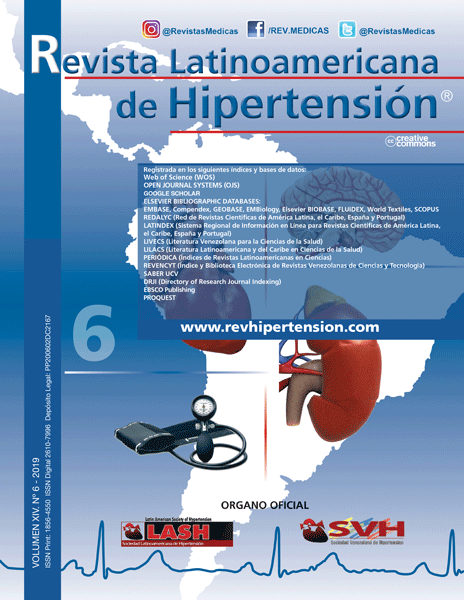Evaluation of the effect of the follow-up caring model on depression syndrome among the patients treated by hemodialysis in the north of Iran
Palabras clave:
follow-up caring model, depression, hemodialysis.Resumen
Introduction: The prevalence of chronic renal failure isincreasing worldwide for multiple reasons. Hemodialysistherapy is a method to recover patients with chronic renalfailure. This treatment affects people’s moods andexposes them to depression due to changing occupational,family, and social situations.Objective: The aim of this study was to determine theeffect of continuous care model on depression syndromein hemodialysis patients.Methods: the sample of this quasi-experimental studywas 76 permanent hemodialysis patients in the dialysisward. In the first phase of the study, the investigationof depressive states was all included sample. From 90screened patients, 76 met the inclusion criteria of thestudy. They were divided into interference and controlgroups. The Beck Short Form Questionnaire was usedto determine the impact of follow-up care. Data wereentered in 21st version of SPSS software. Descriptivestatistics indices and independent t-test, Mann-WhitneyU, Wilcoxon and linear regression models were used toanalyze the quantitative and qualitative data.Findings: Results showed that before intervention therewas no significant difference between the two groups interms of depression level (mild, moderate, and severe);but pretreatment to post-training depression syndromewas statistically significant (P <0/001).Conclusion: Providing Continuous care model is effectivein reducing depression syndrome in hemodialysis patients.Descargas
Los datos de descargas todavía no están disponibles.

